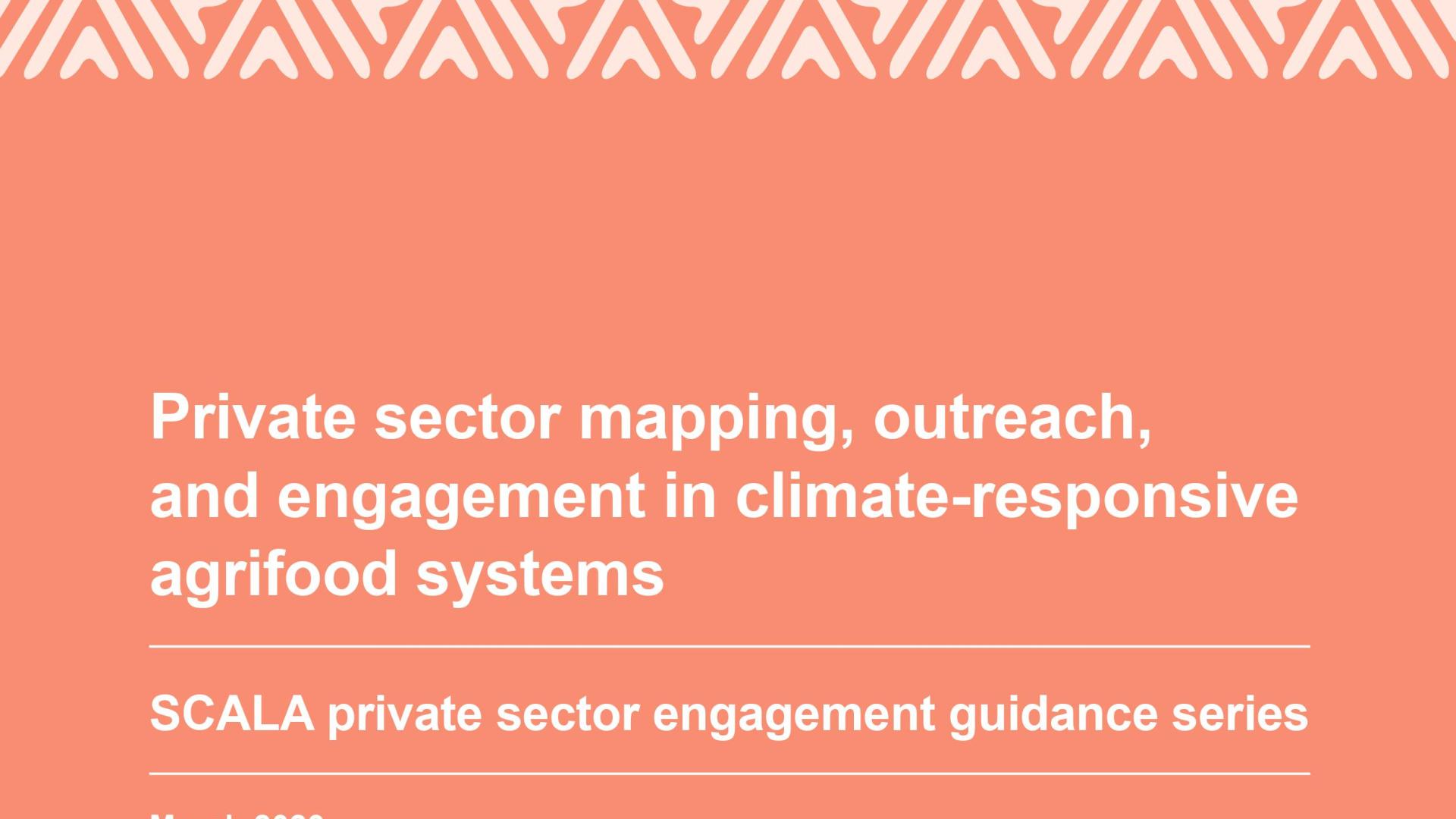SCALA Private Sector Engagement Facility Programme is open to support countries to accelerate investments in low-carbon and climate-resilient agriculture practices by mobilizing private sector actors in Nationally Determined Contributions (NDC) and National Adaptation Plans (NAP) implementation.
Objectives
- The Scaling up Climate Ambition on Land Use and Agriculture (SCALA) Private Sector Engagement Facility (PSEF) is launched by the program to foster stronger partnerships and dialogue between the public and private sectors through demand-led approaches based on countries’ national agriculture and land use sector priorities. It seeks to identify private sector-oriented interventions and engage businesses and investors in implementing climate plans to mobilize resources and develop innovative climate services solutions.
- The SCALA Private Sector Engagement Facility will draw upon tools, emerging lessons, and partnerships developed under the program in providing support to selected non-SCALA countries.
- The main beneficiaries of this facility are public sector actors (Ministry of Environment, Ministry of Agriculture, and so on) in terms of co-designing and receiving targeted support to catalyze private sector action.
- Countries can request support depending on their needs from three distinct service areas. The development of a scope of work in collaboration with countries will incorporate some of these activities to reach tangible outcomes, with the end goal of attracting private finance into climate action initiatives.
- As such, each service area represents a cohesive set of interventions to help reach milestones leading to this end goal. Countries can request support on different service areas depending on the existing level of private sector engagement, as it is understood different countries will have varying levels of advancement with regards to private sector engagement. Applicants are suggested to focus on one service line for maximum impact.
Modalities
SCALA capacity development modalities at individual, organizational, and enabling environment levels:
- Outreach, Opportunity Mapping, and Facilitating Multi-Stakeholder Engagement
- Agriculture sector or value chain overview, private sector and ecosystem mapping and analysis, engagement & outreach (tailored consultations depending on government’s needs).
- Support multi-stakeholder dialogue with the private sector and facilitate integration, representation, and private sector considerations into NAP/NDC multi-stakeholder committees or governance instances.
- Training on systems-leadership and systems-change approaches.
- Assessing Risks and Business Opportunities
- Identify, prioritize, and assess both business opportunities that support climate action goals for a particular commodity or value chain, and also the associated barriers and risks deterring private sector investment in them, through stakeholder consultations.
- Conduct value chain analysis on a particular commodity, with a particular focus on identifying opportunities for private sector engagement and investment within the value chain, and associated barriers/risks.
- Conduct market assessment on a particular commodity or product that has been produced using climate-resilient practices.
- Conduct a feasibility study on relevant private sector-oriented initiative within the land use and agriculture sector that contributes to meeting climate action goals.
- De-risking and Enabling Private Sector Investments
- Identify de-risking instruments that can improve the enabling environment and incentivize private sector investment in NDC/NAP priorities.
- Economic/Financial analysis of de-risking strategies.
- Incubate de-risking strategies through concept refinement, partnership development, and matchmaking support.
Funding Information
- Budget: Each country proposal is eligible for a total budget of USD 50.000. One proposal is allowed per country.
- Support requested must be achievable within a maximum period of 12 months, with agreed-upon deliverables within a customized scope of work expected to be completed within this timeframe. If required, an additional 6 months can be granted.









